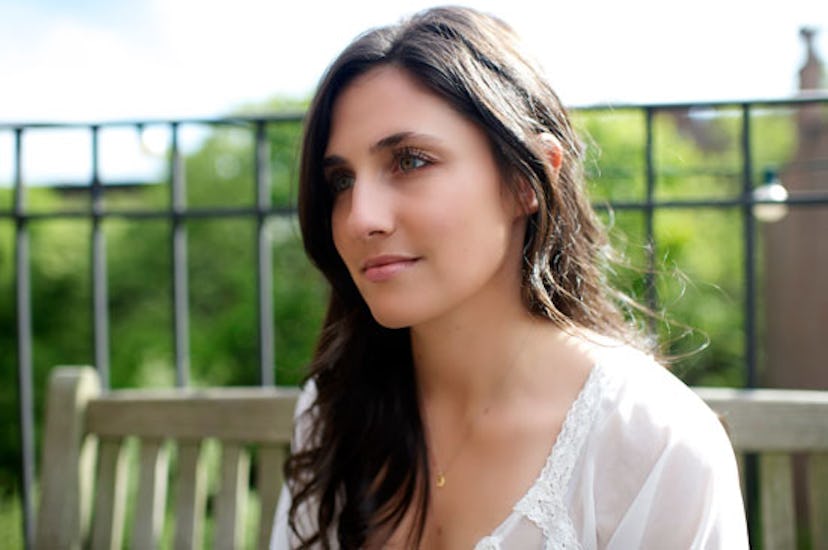Five Minutes with Julie Sarkissian
Five years ago, Julie Sarkissian was an aspiring poet-turned-novelist desperately seeking inspiration when a childlike female narrator—strange but full of naïve wonder—suddenly made herself heard.

Five years ago, Julie Sarkissian was an aspiring poet-turned-novelist desperately seeking inspiration when a childlike female narrator—strange but full of naïve wonder—suddenly made herself heard. “I remember the actual day she just started rambling in my head,” recalls Sarkissian. In Dear Lucy, her debut novel which came out last week (Simon & Schuster), Sarkissian builds a world around that singular voice. Living with a churchgoing farming family and their pregnant teenage daughter, Lucy (who suffers from an unclear learning disability) comes of age in a timeless story of motherhood, family, and loss in rural America. Lucy’s words help lift the story out of the pastoral and into a heightened realism that mingles easily with flights of occasional fantasy.
Novelists often begin with a sentence or situation they find intriguing. I wonder if you started with Lucy’s voice—it’s so unusual. Oh, I did. Definitely. The voice came to me out of the blue; I wrote eight pages in her voice without stopping. By the time she stopped, there wasn’t really a world yet, but it was enough. ____
What was the first thing that Lucy said to you? It’s so strange. She said, “Some of the things I do on the farm is I get the eggs.” The grammar was off just enough that I wanted to follow her down the rabbit hole. ____
The voice really lends itself to imagery and metaphor. Absolutely! For me, with my background as a poet, when I can play with figurative language … there’s no place I would rather be.
The stylishness helps you through the book. Without it, then you’ve got a depressing story where everybody gets abandoned by their loved ones. That’s true, except for the ending. But I did view Lucy as this person that saw the beauty in a totally gross situation. If you take her away, you’re left with a lot of ugliness.
The story does not appear to be set in any defined time or place. Was that a conscious choice? Yes, but it definitely brought a set of problems for me as a writer. Anytime my mind went to that place where I thought about defining those things, I just stopped. It had a Southern Gothic vibe to me, but I wasn’t interested in pursuing the details. I wanted to keep it purposefully vague. It was like my thinking with Lucy’s diagnosis. [#image: /photos/5853ce8cd3b7a5db18f3ccec]||||||Sarkissian’s debut novel
So she has an undefined learning disability? A lot of people think she’s autistic, but I don’t think that quite fits. You know, I always thought of her as a unique voice rather than a real person. For a while, I was considering the novel in a postmodern way, with this fancy ending where Lucy would come to possess these eloquent language skills. But then I thought, Was there anything ‘wrong’ with her at all? Why did we ever need to think that? ____
What did your mom think of your portrayal of motherhood? I actually wrote a piece for Huffpo about my mom, my therapist, and writing the book. [laughs] I think that there was always this desire to get closer to my mother, who was sort of emotionally unavailable because of her own traumatic past. And my mom knows that I have those feelings, so I’m sure she saw them reflected in the book.
Did your therapist read the book? I wanted her to, but she didn’t. That was a funny situation. It came down to my wanting her validation. She’s been my therapist for six years—basically the whole time I was writing the book. But she said, “Here’s the deal. I’m going to take it and I will read it, but we’re never going to talk about it again.” So I had to accept that. ____
That must’ve been frustrating. Oh my god, yes. It’s like getting back test results, but you’re not allowed to see them. ____
And you don’t know if you passed or not. I don’t know if I passed! And I never will.
Photo: Mad Art Studio